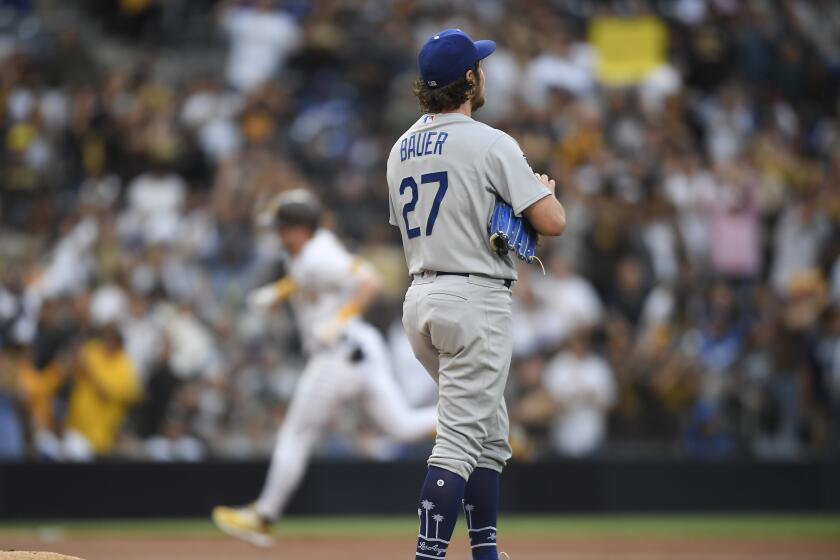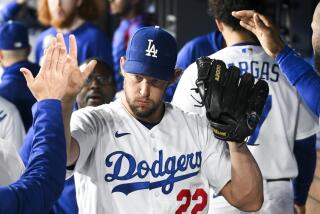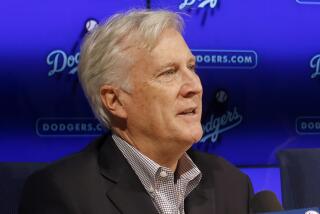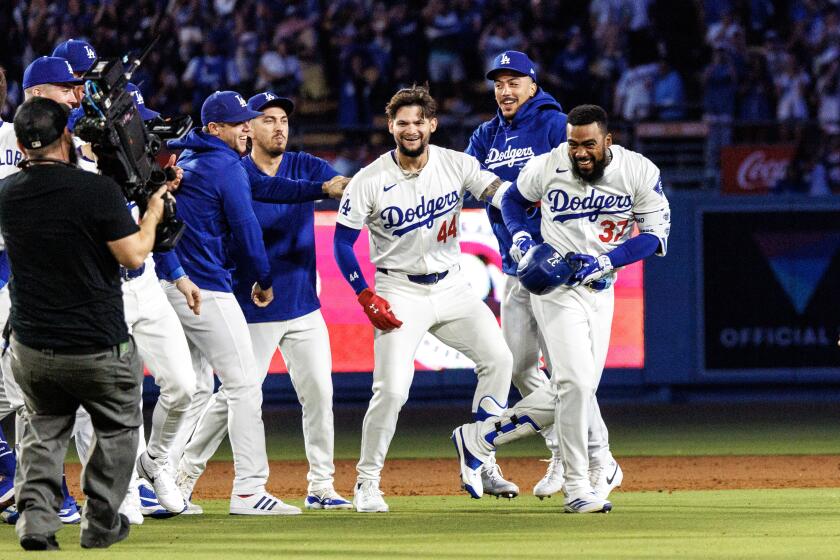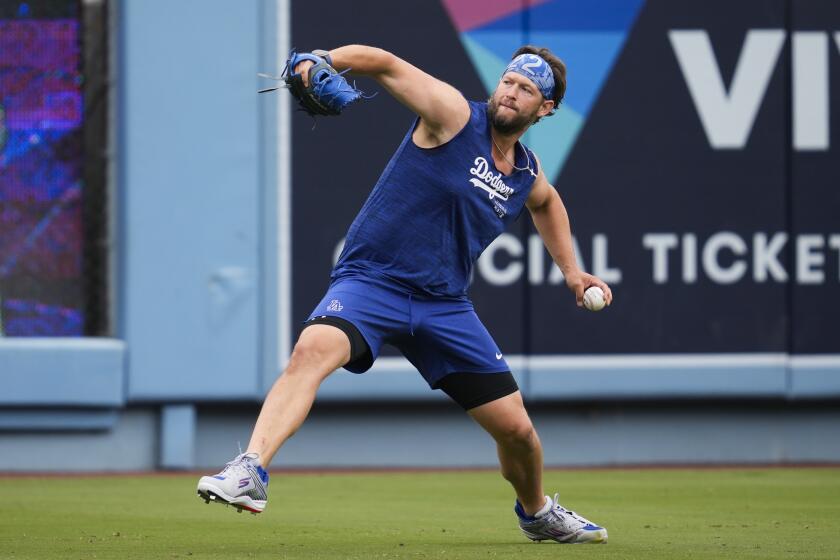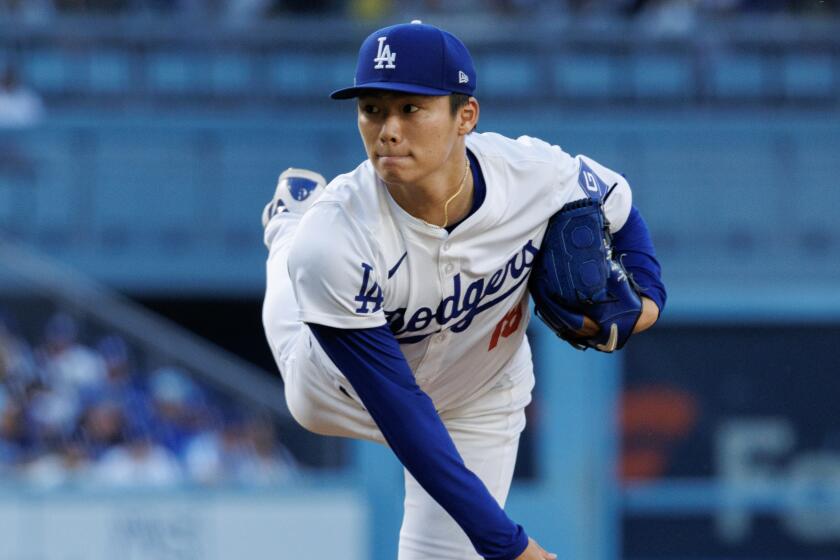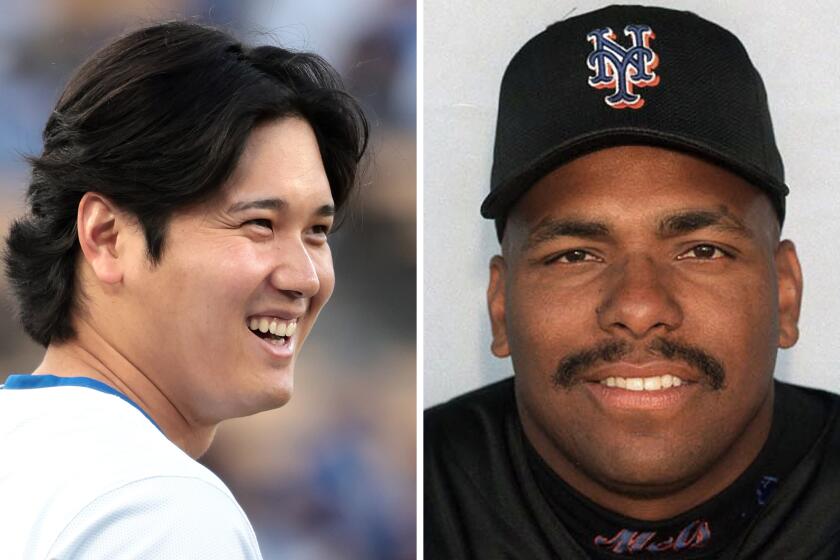Column: The time has come for Andrew Friedman to push Dodgers’ reset button
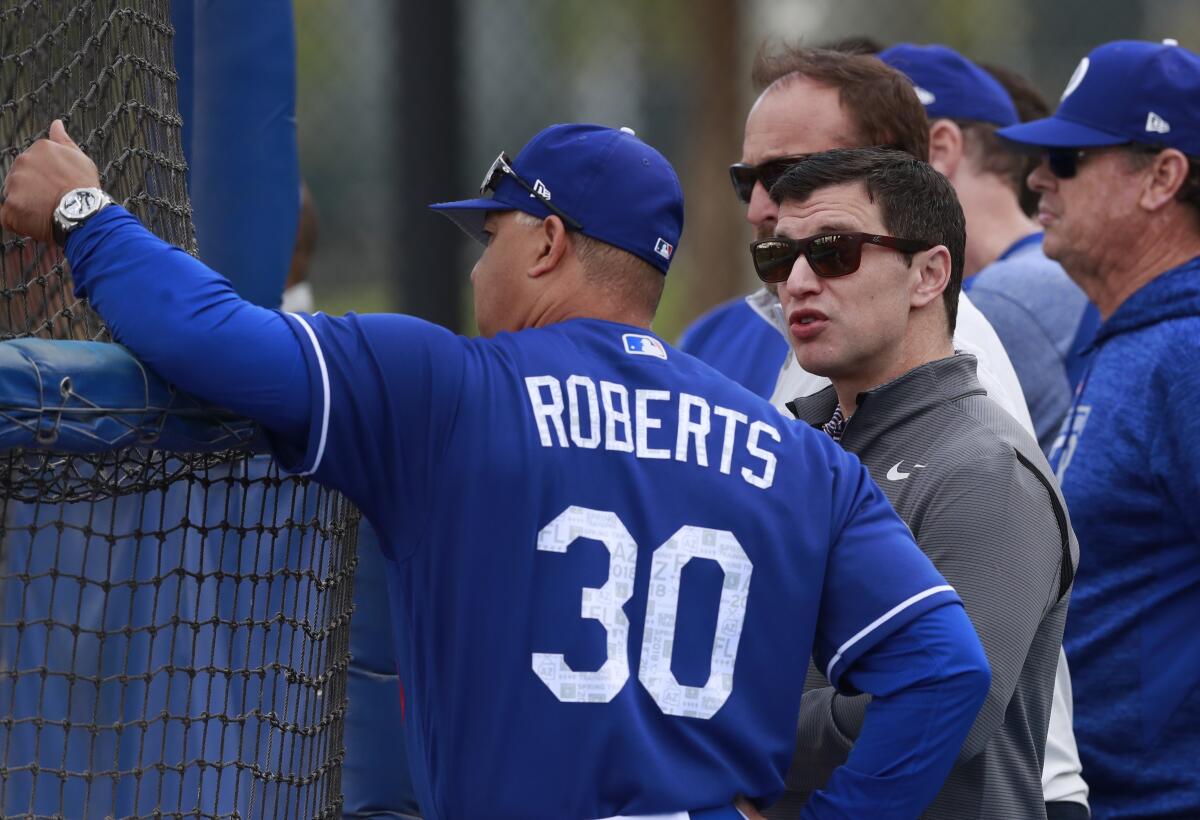
When it comes to Trevor Bauer, what’s important is what the Dodgers aren’t talking about.
They aren’t talking about his future, which is as good a sign as any they don’t see him as a part of theirs.
Less certain is how much the Dodgers still have to pay the alleged modern-day Marquis de Sade. His contract is worth $64 million over the next two years.
The Dodgers don’t know when they will learn how Bauer will impact their budget. The amount they owe Bauer can be reduced if he is suspended without pay by Major League Baseball, which might not discipline the knucklehead pitcher until the Los Angeles Country district attorney’s office decides whether to file criminal charges related to sexual assault accusations made against him by a woman.
The unresolved situation with Bauer further complicates what was already expected to be the team’s most arduous offseason since Andrew Friedman traded former franchise cornerstone Matt Kemp in his first winter as the president of baseball operations.
“The offseason is challenging in a lot of ways, in that the timing element of it is tricky to navigate,” Friedman said last week at baseball’s general managers’ meetings in Carlsbad.
For pitcher Trevor Bauer, the woman who accused him of sexual assault, the Dodgers and MLB, uncertain times lie ahead. Here’s an explainer.
Friedman was describing offseasons in general.
The timing element of this particular offseason will be trickier than usual, and not only because of Bauer’s uncertain effect on the payroll.
Baseball’s collective bargaining agreement expires on Dec. 1 at 8:59 p.m. Pacific time. Unless the league and players’ union can reach a new deal by then, there will be a labor stoppage, which will temporarily freeze the free-agent and trade markets.
That’s not ideal for the Dodgers, who could be forced to turn over a significant portion of their active roster.
With Clayton Kershaw and Max Scherzer free agents, they could have to rebuild their pitching rotation. With Corey Seager and Chris Taylor also on the open market, they could have to revamp their lineup. With their bench weaker this year than it was in previous seasons, they will have to restock on versatile role players.
Ironically, the most stable part of their team could be the group that’s usually the hardest to assemble: the bullpen. Even there, they could have to find a new closer, as Kenley Jansen pitched well enough in his walk year to warrant a multiyear contract.
Counting Bauer and arbitration-eligible players such as Cody Bellinger, Trea Turner and Julio Urias, the Dodgers are expected to have more than $200 million committed to the players already under their control.
Re-signing all of their free agents would push the payroll considerably over $300 million, something Friedman acknowledged might not be realistic.
It’s not as if that would solve all of their problems.
Are you a true-blue fan?
Get our Dodgers Dugout newsletter for insights, news and much more.
You may occasionally receive promotional content from the Los Angeles Times.
The front office’s attempt to reinvent pitching strategy in the postseason wasn’t the only reason the Dodgers failed to repeat their World Series championship. The team’s weakened bench was also a factor.
They can’t address everything through free agency.
“We will be well-positioned, whether it’s through trade or free agency, to figure out how to address different areas that we want to,” Friedman said.
Consider the possibilities.
Say, Seager signs elsewhere. The Dodgers will lose a middle-of-the-order hitter.
Or, say, Scherzer and Kershaw leave. They will have a rotation that consists of Urias, Walker Buehler, Tony Gonsolin, reclamation project Andrew Heaney … and who else?
Every indication is Friedman will have to swing some major deals.
The Cincinnati Reds are in the early stages of what appears to be a fire sale. Starting pitchers Sonny Gray, Luis Castillo and Tyler Mahle could be available.
The Oakland Athletics also look as if they will be sold for parts. Fireballer Frankie Montas, who was briefly in the Dodgers organization, could be an acquisition candidate. So could fellow pitchers Sean Manaea and Chris Bassitt.
“I think there’s going to be some really good pitching available via trade,” Friedman said.
There could be hitters on the market too, with All-Star infielders Matt Chapman and Matt Olson of the Athletics possibly on the move.
But the Dodgers aren’t the only vultures circling the carcasses of these rebuilding small-market teams.
The team’s success under Friedman has resulted in competitors constructing similarly minded front offices. His former top lieutenant, Farhan Zaidi, now runs the defending National League West champion San Francisco Giants. Another former assistant, Alex Anthopoulos, was the architect of the World Series champion Atlanta Braves.
In other words, Friedman will almost certainly encounter greater competition in finding bargains on the trade market than he did in the 2014-15 offseason.
The environment could force Friedman to take chances, as he did in his first winter with the Dodgers when he traded Kemp, Dee Gordon and Dan Haren. He didn’t re-sign Hanley Ramirez.
Those weren’t popular moves at the time. Kemp was a homegrown player who became one of the best players in the game. The affable Gordon also broke into the majors with the Dodgers.
Ultimately, results proved the Dodgers right. The moves fortified the margins of their roster. They lightened the payroll, which in turn gave them the flexibility to make other deals.
In the seven years since then, the Dodgers have won six division titles, three pennants and a World Series.
The time has come for Friedman to push the reset button again. The question isn’t if he’ll do it. The question is when.
More to Read
Are you a true-blue fan?
Get our Dodgers Dugout newsletter for insights, news and much more.
You may occasionally receive promotional content from the Los Angeles Times.

